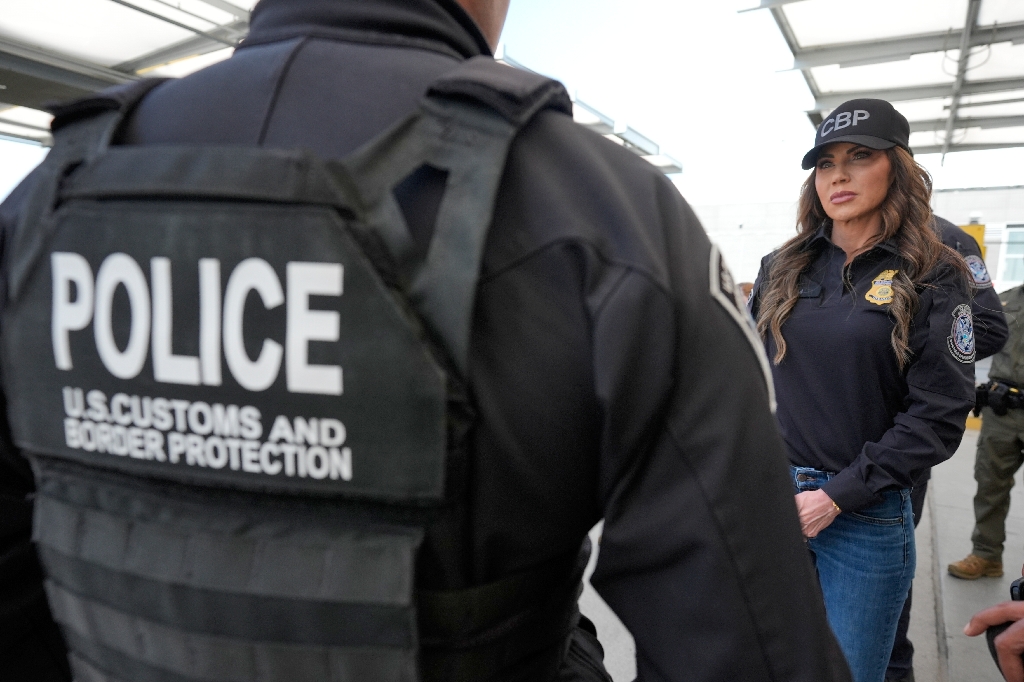(AFP) – Veteran envoy John Kerry called Friday for the United States to find major new climate finance methods, warning of “huge disappointment” if historic promises to transition from fossil fuels go unheeded.
Kerry, who is stepping down as the US climate envoy, described an agreement in December in Dubai at the last UN summit as historic for its call on the planet to move away from fossil fuels in large part responsible for the planet’s rising temperatures. But he warned that the COP28 agreement must not be “reduced to mere words on a piece of paper.”
“If we don’t do what we’ve said we’re going to do in these next months, that’s exactly what could happen, encouraging cynicism and dropout-ism and huge disappointment around the world,” Kerry said at the Council on Foreign Relations.
Kerry, an 80-year-old former secretary of state, senator and presidential contender, has said he will focus outside of government on mobilizing private funding to complement government efforts on climate.
Kerry said that the United States should consider a system of financial guarantees for investors, which would cover risks if projects fail. “It’s time for creativity. We’ve come up with new financial instruments when we needed them before, and my judgment is we need them now,” he said.
He pointed to his work as envoy with Indonesia and Vietnam on so-called Just Energy Transition Partnerships, or JETPs — financing deals between a small group of wealthy countries and an emerging economy to reduce reliance on fossil fuels or take other climate action.
Calling such deals “very bespoke,” Kerry said, “We don’t have time to do that.” “We need to help deploy larger sums with greater confidence that the deal is bankable and we de-risked it sufficiently,” he said.
A recent study by the Climate Policy Initiative pointed to assessments that credit guarantees could mobilize between six and 25 times as much financing as traditional loans, with developing countries in particular looking to reduce uncertainties.
– Seeking common ground with China –
Kerry also repeated his call for the world to phase out subsidies for fossil fuels — often politically sensitive in countries reliant on oil and gas. “Why in God’s name we (are) subsidizing the creators of the problem is beyond me,” he said.
He voiced admiration for the European Union’s new “CBAM” carbon tariff, although he acknowledged it was not politically feasible in the United States.
President Joe Biden has overseen the investment of billions of dollars in green technology as part of his signature legislative achievement, the Inflation Reduction Act, in a sharp difference from his predecessor Donald Trump, his likely challenger in November elections.
Trump has cast doubt on the science behind climate change and walked out of the Paris climate accord, which Kerry helped negotiate as top diplomat under president Barack Obama.
Kerry credited the Dubai agreement in part to cooperation between the United States and China, the world’s two largest greenhouse gas emitters and frequent adversaries on the global stage.
Kerry developed an unusually warm relationship with his Chinese counterpart Xie Zhenhua, who even brought his grandson to Dubai to meet the US negotiator.
Kerry hinted that he had internal resistance even within the Biden team, saying, “I had to convince some people in the administration that we really needed to work with China at a time where, as you all know, the rhetoric of Washington and most of the currents are kind of moving against that idea.”
But he said that Biden agreed that on climate, “This is not and should not be an ideological fight.” “We don’t have time to argue about the climate thing,” Kerry said. – Shaun TANDON
© 2024 AFP




